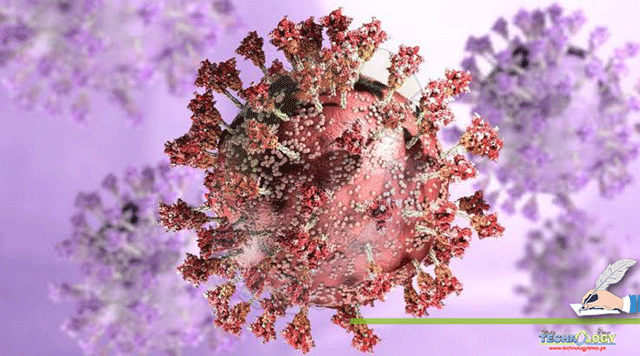In South Africa there another unrecognized strain was reported to WHO on November 21, 2021 now this unrecognized strain is known as B.1.1.529 (Omicron).

By Haseeb Ahmad(Faculty of Pharmacy BZU, Multan) Dr.M.Umair Waqas, Dr.Waqar Zaib and Abdul Samad
What is Covid-19?
There are family of viruses which cause respirstory illness in humans called Coronavirus.It has crown spikes like structure on its surface that’s why it is called coronaMiddle East respiratory syndrome(MERS), .Severe acute respiratory syndrome(SARS) and cough are some common examples of corona viruses which are main reason of illness in humans.
Cause of Covid-19
This viral disease is due to SARS-CoV-2 virus.
Introduction to Omicron
The epidemiological situation in South Africa has been characterized by three distinct peaks in reported cases, the latest of which was predominantly the Delta variant. In last two weeks a large number of cases of Coronavirus was reported, corresponding with the detection of B.1.1.529 (Omicron) variant. The specimen collected on November 9, 2021 which contain B.1.1.529 (Omicron) strain. WHO gave high alert about B.1.1.529 (Omicron). It is variant of concern because it has a large number of mutations, some of which have been associated with potential increased transmissibility and possible immune escape – by this we mean, there is a chance people may get infected by it even if they have developed some natural immunity from previous Covid-19 infection, or following Covid-19 vaccination. At the same time, there are mutations that have never been documented before. Because of this, the Omicron variant needs to be investigated for us to have a better understanding of its potential impacts. Since then, the variant has been identified in more than 80 countries. It is two to three times as likely to spread as Delta. Doubling every two to four days — a much shorter time than Delta needed to double. The rapid doubling rate of Omicron means that it may soon become the dominant variant in many countries. It could then go on to a record-breaking number of infections, even among vaccinated. People or those who had previously had Covid-19. But it’s not clear yet just how big a risk Omicron poses to any given person who gets it.
Does the Omicron variant cause different symptoms?
There is no information to suggest that Omicron causes different Covid-19 symptoms from other Covid-19 variants. However the collective symptoms are given below:
Fever or chills
Cough
Shortness of breath or difficulty breathing
Fatigue
Muscle or body aches
Headache
New loss of taste or smell
Sore throat
Congestion or runny nose
Nausea or vomiting
Diarrhea
Emergency warning signs for COVID-19:-
If someone is showing any of these signs, seek emergency medical care immediately:-
Trouble breathing
Persistent pain or pressure in the chest
New confusion
Inability to wake or stay awake
Pale, gray, or blue-colored skin, lips, or nail beds, depending on skin tone
Will Omicron cause more severe illness?
More data are needed to know if Omicron infections, and especially reinfections and breakthrough infections in people who are fully vaccinated, cause more severe illness or death than infection with other variants.
Effectiveness of current test:-
The widely used PCR test continue to detect infection, including infection with Omicron, as we have seen with other variants as well. Studies are going to determine whether there is an impact on other types of tests, including rapid antigen detection tests.
Will vaccines work against Omicron?
Current vaccines are expected to protect against severe illness, hospitalizations, and deaths due to infection with the Omicron variant. However, breakthrough infections in people who are fully vaccinated are likely to occur. With other variants, like Delta, vaccines have remained effective at preventing severe illness, hospitalizations, and death. Thus the vaccine offers only partial protection against Omicron.
The head of US vaccine manufacturer Moderna, Stephane Bancel also believes that there is a significant decrease in the productive effect. That is because 32 of the 50 mutations in Omicron affect the spike protein, which the coronavirus uses to enter the cells. This probably affects all existing vaccines.
Effectiveness of current treatment:-
Corticosteroids and IL6 Receptor Blockers will still be effective for managing patients with severe Covid-19.Other treatments will be assessed to see if they are still as effective given the changes to parts of the virus in the omicron variant.
How can I protect myself and my family against the Omicron variant?
The most important thing you can do is reduce your risk of exposure to the virus. To protect yourself and your loved ones, make sure to:-
Wear a mask that covers your nose and mouth. Make sure that your hands are clean when you put on and remove your mask.
Keep a physical distance of at least 1 meter from others.
Avoid poorly ventilated or crowded spaces.
Open windows to improve ventilation indoors.
Wash your hands regularly.
When it’s your turn, get vaccinated
Citizens are advised that in addition to masking ,avoiding crowds, and working on ventilation, testing is also another protective step.Covid-19 testing is recommended for anyone who has Covid-19 symptoms or was expected (in any way) to the virus. It could assist in ensuring before gatherings, even though everybody is vaccinated.
Authors:-
Haseeb Ahmad : FACULTY OF PHARMACY BZU MULTAN. Dr.Muhammad Umair waqas, Dr.Waqar Zaib and Abdul Samad: Faculty of veterinary and Animal Sciences MNSUAM